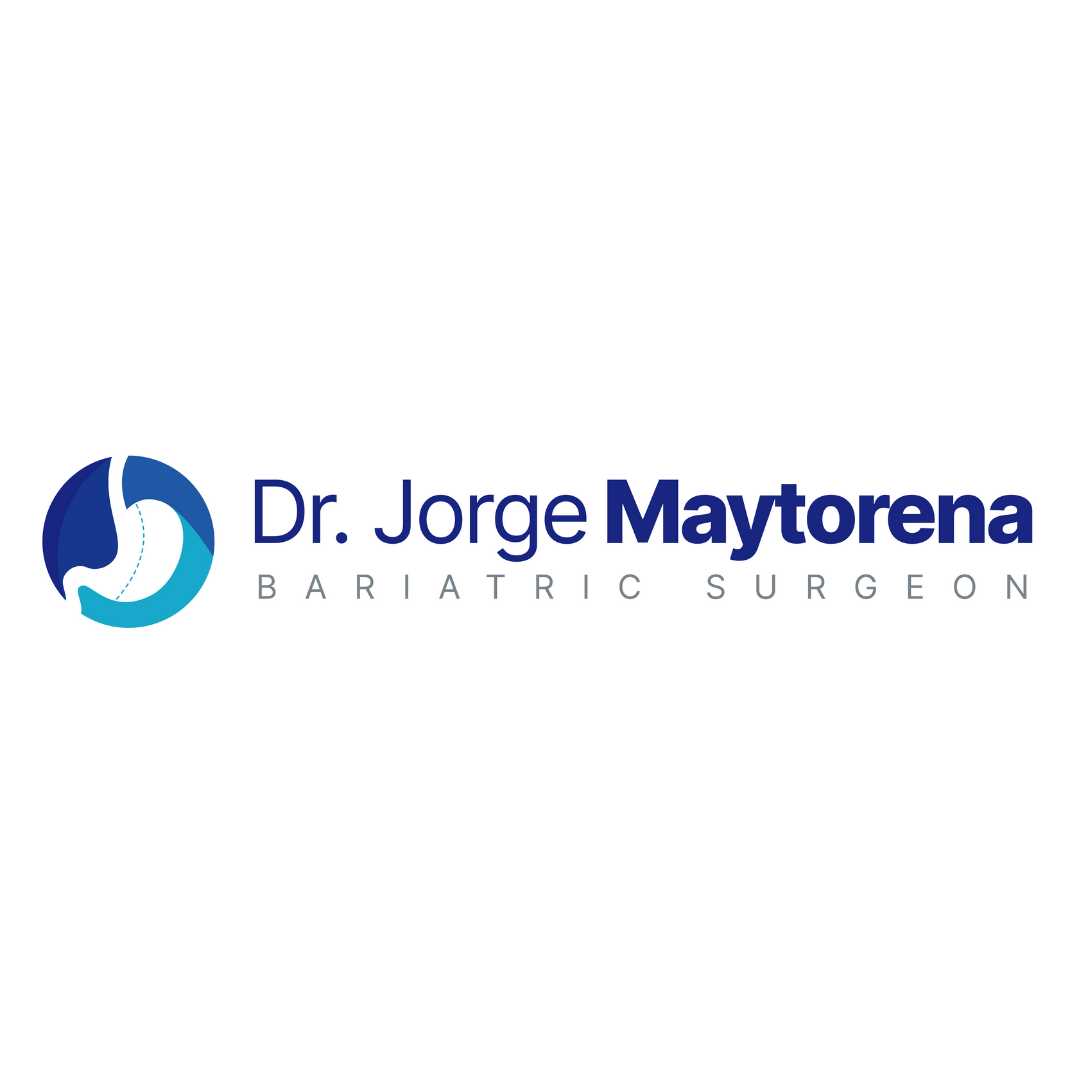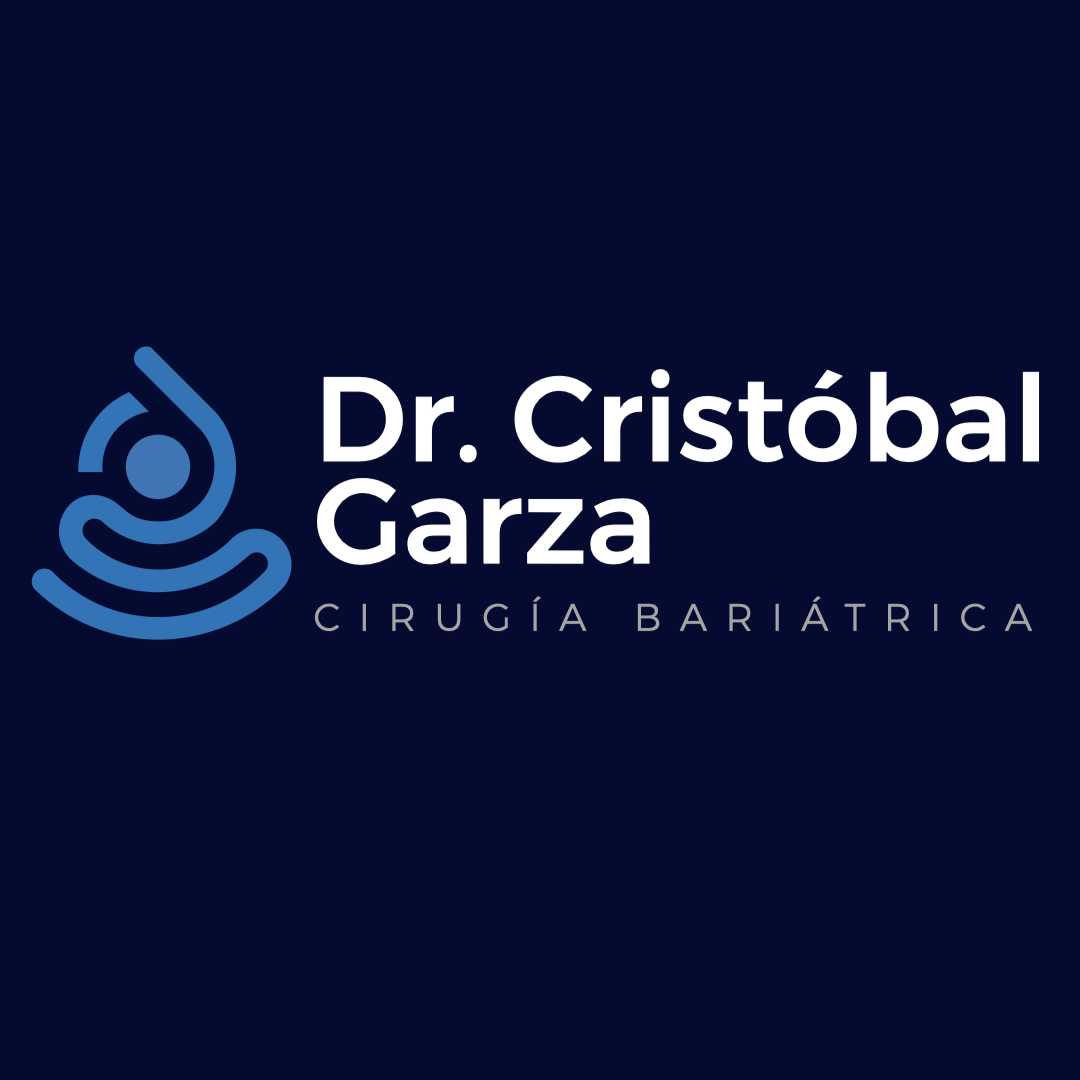Bariatric Surgeon in Tijuana Support Your Journey to Lasting Weight Loss

A bariatric surgeon in Tijuana is often part of a dedicated team that provides comprehensive care, from your initial consultation to extensive post-operative support. These medical professionals utilize cutting-edge techniques designed not only to reduce weight but also to address obesity-related health conditions, improving your overall quality of life. The focus is on creating a sustainable lifestyle change, providing you with the tools and guidance needed for long-term success.
When considering bariatric surgery, it’s natural to have many questions about the procedures, safety, costs, and recovery. Tijuana's medical tourism sector has grown precisely to meet these needs, offering a streamlined and supportive experience. From advanced laparoscopic methods to specialized revision surgeries, bariatric surgeons in Tijuana are at the forefront of weight loss solutions, committed to helping you achieve your health goals with personalized care and proven results.
What types of bariatric surgeries are commonly performed in Tijuana?
Bariatric surgeons in Tijuana offer a wide array of procedures, each tailored to a patient's specific needs and health profile. The most frequently performed surgeries include:
- Gastric Sleeve (Sleeve Gastrectomy): This procedure involves removing about 75-80% of the stomach, leaving a smaller, banana-shaped pouch or "sleeve." It reduces the amount of food the stomach can hold and also impacts hunger-regulating hormones, leading to significant weight loss. It's often favored for its simplicity and lower complication rates compared to bypass surgeries.
- Gastric Bypass (Roux-en-Y): Considered the "gold standard," this surgery creates a small stomach pouch and reroutes a portion of the small intestine, bypassing part of it. It restricts food intake and reduces nutrient absorption. Patients often experience rapid and substantial weight loss, along with improvements in obesity-related conditions like type 2 diabetes.
- Mini-Gastric Bypass: A simpler and often quicker version of the traditional gastric bypass, the mini-gastric bypass involves creating a longer, narrower stomach pouch and connecting it to a loop of the small intestine. It offers similar benefits to the Roux-en-Y but with a less complex surgical technique.
- SADI-S (Single Anastomosis Duodeno-Ileal Bypass with Sleeve Gastrectomy): This advanced procedure combines elements of the gastric sleeve with a duodenal switch, offering powerful weight loss and metabolic improvements, especially for those with severe obesity or complex metabolic conditions. It is a highly effective option for long-term weight management.
- Gastric Balloon: This is a non-surgical, temporary procedure where a deflated balloon is inserted into the stomach and then inflated, taking up space and promoting a feeling of fullness. It's often used for less severe obesity or as a bridge to surgery.
- Revision Bariatric Surgery: For patients who haven't achieved desired results or are experiencing complications from previous bariatric surgeries, Tijuana surgeons also specialize in revision procedures to correct or modify earlier operations.
What makes bariatric surgeons in Tijuana utilize "cutting-edge techniques"?
The term "cutting-edge techniques" in Tijuana's bariatric surgery field refers to several key aspects that elevate the quality and effectiveness of care:
- Minimally Invasive Laparoscopic Surgery: A cornerstone of modern bariatric surgery, almost all procedures in Tijuana are performed laparoscopically. This involves small incisions, reducing pain, scarring, recovery time, and the risk of complications compared to traditional open surgery.
- Advanced Surgical Instruments and Technology: Leading clinics in Tijuana invest in the latest medical equipment, including high-definition cameras, specialized staplers, and energy devices, which allow for greater precision and safety during complex procedures.
- Specialized Procedures: Beyond standard gastric sleeve and bypass, surgeons offer more intricate operations like SADI-S and Single Incision Laparoscopic Sleeve Gastrectomy (SILS). SILS, for instance, uses only one incision, further minimizing scarring and enhancing recovery.
- Continuous Training and International Collaboration: Many bariatric surgeons in Tijuana undergo continuous education, often participating in international conferences and training programs. Some are trained in the U.S. or collaborate with American medical institutions, ensuring their practices align with global best standards.
- Focus on Patient Outcomes: The "cutting-edge" approach also includes a holistic view of patient care, integrating pre-operative preparation, personalized nutrition plans, psychological support, and extensive post-operative follow-up to ensure lasting weight loss and improved health. This comprehensive approach is crucial for sustainable results.
How much does bariatric surgery cost in Tijuana compared to the United States or Canada?
One of the primary reasons patients choose Tijuana for bariatric surgery is the significant cost savings without compromising on quality. The cost difference is substantial:
| Procedure | Average Cost in Tijuana | Average Cost in US/Canada |
|---|---|---|
| Gastric Sleeve | $4,000 - $8,000 | $15,000 - $30,000+ |
| Gastric Bypass | $6,000 - $10,000 | $20,000 - $35,000+ |
| Mini-Gastric Bypass | $5,000 - $9,000 | $18,000 - $30,000+ |
| SADI-S | $7,000 - $12,000+ | $25,000 - $40,000+ |
These prices in Tijuana often include a comprehensive package covering hospital stays, surgeon and anesthesia fees, pre-operative tests, post-operative medications, and even ground transportation from the San Diego airport to the clinic/hotel. This all-inclusive approach provides immense value compared to the fragmented costs often encountered in other countries.
Is bariatric surgery in Tijuana safe?
Safety is a paramount concern for any surgical procedure, and Tijuana's leading bariatric centers prioritize patient well-being. Many clinics in Tijuana operate under stringent safety protocols and have received international accreditations such as:
- Joint Commission International (JCI): This is a global standard for healthcare quality and patient safety, similar to accreditation in the U.S.
- Surgical Review Corporation (SRC) Center of Excellence: Recognizes programs that demonstrate a commitment to patient safety and quality care in bariatric surgery.
- Memberships in Professional Organizations: Many surgeons are members of reputable organizations like the American Society for Metabolic and Bariatric Surgery (ASMBS) and the International Federation for the Surgery of Obesity and Metabolic Disorders (IFSO).
Beyond accreditations, reputable clinics ensure patient safety through:
- Experienced Surgeons: Many bariatric surgeons in Tijuana have performed thousands of procedures and possess extensive experience in complex cases.
- State-of-the-Art Facilities: Hospitals are equipped with modern operating rooms, intensive care units, and advanced diagnostic tools.
- Bilingual Staff: To minimize communication barriers, most medical teams are fluent in English, ensuring clear understanding between patients and providers.
- Comprehensive Pre-operative Screening: Patients undergo thorough medical evaluations to ensure they are suitable candidates for surgery and to identify any potential risks.
- Dedicated Patient Support: Patients are often provided with a dedicated coordinator and support throughout their journey, including safe transportation and comfortable accommodations.
How long does the recovery process take after bariatric surgery in Tijuana?
The recovery timeline for bariatric surgery is a gradual process, but the initial phase in Tijuana is often streamlined for international patients:
- Hospital Stay: Most patients stay in the hospital for 2 to 3 days post-surgery, where they are closely monitored for complications, pain management is initiated, and early mobility is encouraged.
- Initial At-Home Recovery (First 1-2 Weeks): Upon returning home or to a recovery hotel, patients typically experience some discomfort, swelling, and fatigue. Light walking is highly recommended to aid circulation and prevent blood clots. Dietary progression begins with clear liquids, moving to full liquids, and then pureed foods.
- Returning to Work and Light Activities (2-4 Weeks): Many patients feel well enough to return to light work and most daily activities within 2 to 4 weeks, depending on the type of surgery and the physical demands of their job. Strenuous activities and heavy lifting should still be avoided.
- Full Recovery and Dietary Progression (Several Months): Over the next few months, the diet slowly transitions to soft solids and then regular foods, with careful attention to portion sizes and nutrient intake. Full healing of internal tissues and the adjustment to new eating habits take time. Regular follow-up appointments, often virtual for international patients, are crucial during this phase.
Patients are typically discharged with clear instructions on pain medication, wound care, dietary guidelines, and activity restrictions. The medical teams in Tijuana emphasize proactive communication and support during this vital recovery period.
What is the typical itinerary for someone traveling to Tijuana for bariatric surgery?
The medical tourism infrastructure in Tijuana is well-developed to facilitate a smooth experience for international patients. A common itinerary might look like this:
- Day 1: Arrival and Pre-Op:
- Fly into San Diego International Airport (SAN).
- Be picked up by clinic-arranged transportation (often included in the package) and driven across the border to Tijuana.
- Check into a designated hotel or directly to the hospital for pre-operative consultations, blood work, EKG, and other necessary tests.
- Meet with the surgeon, anesthesiologist, and nutritionist.
- Day 2: Surgery Day:
- Early morning transfer to the hospital.
- Bariatric surgery procedure.
- Post-operative recovery in the hospital.
- Day 3: Hospital Recovery:
- Continued monitoring and pain management.
- Begin walking around the hospital to promote circulation.
- Start clear liquid diet as tolerated.
- Leak test (for certain procedures like gastric sleeve).
- Day 4 (Gastric Sleeve): Departure Day:
- Final check-up with the surgeon.
- Receive discharge papers, medications, and post-operative instructions.
- Transport back to San Diego International Airport for your flight home.
- Day 5 (Gastric Bypass/SADI-S/Revisions): Departure Day:
- For more complex procedures, an additional night in the hospital may be required.
- Similar discharge process and transport to the airport.
This structured itinerary minimizes stress and ensures patients receive continuous care and support.
What are the qualifications of bariatric surgeons in Tijuana?
The leading bariatric surgeons in Tijuana are highly qualified and experienced. Their credentials often include:
- Board Certifications: Many surgeons are board-certified by Mexican medical boards and may also hold certifications or memberships with international bodies, demonstrating adherence to high standards of practice.
- Extensive Training: They typically complete specialized training in general surgery, followed by fellowships in bariatric and metabolic surgery. Some have received part of their training or continued education in the United States or other internationally recognized medical centers.
- High Volume of Procedures: Due to Tijuana's popularity as a medical tourism destination, bariatric surgeons there often perform a very high volume of weight loss surgeries annually, accumulating vast experience in various complex cases. This high volume contributes to their expertise and refined techniques.
- International Memberships: Active memberships in organizations like the American Society for Metabolic and Bariatric Surgery (ASMBS) and the International Federation for the Surgery of Obesity and Metabolic Disorders (IFSO) indicate a commitment to global standards and ongoing professional development.
- Bilingual Communication: While not a qualification in surgical skill, fluency in English is a common attribute among top Tijuana surgeons, crucial for effective patient-doctor communication, especially for international patients.
What should I expect during my initial bariatric consultation in Tijuana?
Your initial consultation, which can often be done virtually or upon arrival, is a crucial step in your bariatric journey. You can expect:
- Comprehensive Medical History Review: The surgeon and team will gather detailed information about your weight history, previous attempts at weight loss, current health conditions (like diabetes, high blood pressure, sleep apnea), and any medications you are taking.
- Physical Examination and Diagnostic Tests: This may include blood tests, an EKG, and potentially imaging scans (like X-rays or ultrasounds) to assess your overall health and suitability for surgery.
- Discussion of Surgical Options: The surgeon will explain the various bariatric procedures available, discussing the benefits, risks, and expected outcomes of each in relation to your specific health profile and weight loss goals. This is a time to ask all your questions.
- Personalized Treatment Plan: Based on the assessment, a tailored plan will be developed, including the recommended surgical procedure, pre-operative dietary guidelines, and post-operative care instructions.
- Cost and Logistics Discussion: The team will transparently discuss the total cost of the procedure, what’s included in the package, and logistical arrangements for your travel and stay.
This consultation is designed to ensure you are well-informed and comfortable with the proposed treatment plan before proceeding.
What are the eligibility criteria for bariatric surgery in Tijuana?
While specific criteria can vary slightly between clinics and individual patient cases, the general eligibility guidelines for bariatric surgery in Tijuana align with international standards:
- Body Mass Index (BMI):
- BMI of 40 or higher (severe obesity).
- BMI of 35 to 39.9 (obesity) with at least one significant obesity-related health condition (comorbidity), such as type 2 diabetes, high blood pressure (hypertension), severe sleep apnea, non-alcoholic fatty liver disease, or high cholesterol.
- History of Failed Weight Loss Attempts: Patients should have a history of unsuccessful attempts to lose weight through diet and exercise programs.
- Commitment to Lifestyle Changes: A strong commitment to making permanent dietary and lifestyle changes after surgery is crucial for long-term success.
- Psychological Readiness: Patients undergo a psychological evaluation to ensure they understand the implications of surgery and are mentally prepared for the significant lifestyle adjustments.
- Absence of Contraindications: Certain medical conditions, such as severe untreated mental illness, active substance abuse, or medical conditions that make surgery too risky, may prevent a person from being a candidate.
What is the post-operative diet progression after bariatric surgery?
A crucial part of achieving lasting weight loss and avoiding complications after bariatric surgery is strictly following a phased dietary progression. This typically involves:
- Phase 1: Clear Liquids (Days 1-7): Immediately after surgery, only clear liquids like water, sugar-free broth, sugar-free gelatin, and diluted clear juices are allowed. This allows the stomach to heal.
- Phase 2: Full Liquids (Week 2-3): Once clear liquids are tolerated, the diet progresses to full liquids, including protein shakes, strained cream soups, sugar-free yogurt, and milk. The focus is on hydration and protein intake.
- Phase 3: Pureed Foods (Weeks 3-5): As healing continues, patients move to pureed foods, which have a smooth, mashed consistency. Examples include pureed lean meats, fish, cooked vegetables, and fruits. Meals should be small and eaten slowly.
- Phase 4: Soft Solids (Weeks 5-8): Gradually, soft, easily chewable solid foods are introduced, such as scrambled eggs, soft fish, ground meats, and well-cooked vegetables. Patients learn to chew thoroughly and stop eating when feeling full.
- Phase 5: Regular Diet (After Week 8 onwards): Over time, patients transition to a healthy, balanced regular diet, focusing on lean protein, non-starchy vegetables, and complex carbohydrates. Portion control, mindful eating, and avoiding high-sugar/high-fat foods become permanent habits.
Throughout all phases, consistent hydration (sipping water between meals) and daily vitamin/mineral supplementation are critical to prevent deficiencies.
What kind of follow-up care is provided by Tijuana bariatric surgeons?
Effective follow-up care is essential for the long-term success of bariatric surgery, and reputable clinics in Tijuana understand this. They offer various forms of support for international patients:
- Virtual Consultations: Many clinics offer telemedicine appointments, allowing patients to consult with their surgeon or nutritionist from their home country for ongoing monitoring and addressing any concerns.
- Nutritional Counseling: Patients typically receive a detailed nutritional plan and have access to bariatric dieticians who provide guidance on meal planning, portion control, and supplementation to prevent nutritional deficiencies.
- Psychological Support: The journey of weight loss can be emotionally challenging. Some clinics offer access to psychologists or therapists, or recommend support groups to help patients adjust to their new body image and lifestyle.
- Online Support Groups: Many centers facilitate online communities, often through social media platforms, where patients can connect with others who have undergone similar procedures, share experiences, and receive peer support.
- Lifelong Monitoring: Bariatric surgery requires lifelong commitment to dietary changes and supplementation. Clinics provide guidelines for regular blood tests to monitor nutrient levels and address any potential deficiencies proactively.
This ongoing support network ensures that patients feel guided and motivated long after they leave Tijuana, contributing to their sustained weight loss and improved health.
Can bariatric surgery resolve obesity-related health conditions?
One of the most profound benefits of bariatric surgery, beyond weight loss, is its powerful impact on comorbid conditions. Many patients experience significant improvement or even complete remission of health issues directly linked to obesity:
- Type 2 Diabetes: Bariatric surgery, especially gastric bypass and SADI-S, can lead to rapid and long-term remission of type 2 diabetes. This is often due to hormonal changes that improve insulin sensitivity, in addition to weight loss. Many patients can reduce or eliminate their need for diabetes medications.
- High Blood Pressure (Hypertension): As weight decreases, blood pressure often normalizes, allowing many patients to reduce or discontinue their antihypertensive medications.
- Sleep Apnea: Weight loss can dramatically improve or resolve obstructive sleep apnea, leading to better sleep quality and reducing the need for CPAP machines.
- High Cholesterol and Heart Disease Risk: Bariatric surgery improves lipid profiles, reducing LDL ("bad") cholesterol and triglycerides, and increasing HDL ("good") cholesterol, thereby lowering the risk of heart disease and stroke.
- Joint Pain and Mobility: Reduced weight significantly lessens the strain on weight-bearing joints (knees, hips, back), leading to decreased pain and improved mobility, allowing for a more active lifestyle.
- Other Conditions: Conditions like gastroesophageal reflux disease (GERD), non-alcoholic fatty liver disease (NAFLD), and certain types of cancer risk can also improve or decrease after bariatric surgery.
The resolution or significant improvement of these conditions not only enhances quality of life but also extends life expectancy for many patients.
What lifestyle changes are necessary after bariatric surgery?
Bariatric surgery is a powerful tool, but its long-term success hinges on significant and permanent lifestyle changes. These changes are not just temporary adjustments but lifelong commitments:
- Dietary Adherence: This is perhaps the most critical change. Patients must learn to eat very small portions, chew food thoroughly, eat slowly, and prioritize protein. Avoiding high-sugar, high-fat, and highly processed foods is essential to prevent complications like "dumping syndrome" and ensure sustained weight loss.
- Regular Exercise: Incorporating regular physical activity into daily life is vital. Starting with light walks and gradually increasing intensity helps burn calories, improves cardiovascular health, and maintains muscle mass during weight loss.
- Lifelong Supplementation: Due to reduced food intake and altered absorption, patients will need to take daily vitamin and mineral supplements (multivitamins, calcium, vitamin D, B12, iron) for the rest of their lives to prevent nutritional deficiencies.
- Mindful Eating Habits: Developing a new relationship with food is key. This includes recognizing true hunger cues, avoiding emotional eating, and separating eating from other activities like watching TV.
- Hydration: Sipping water throughout the day is critical, but avoiding drinking during meals prevents the stomach pouch from stretching and helps with nutrient absorption.
- Psychological and Emotional Support: The journey involves significant physical and emotional transformations. Engaging in support groups, seeking counseling, or connecting with peers helps navigate these changes and address any emotional eating patterns or body image issues.
How do I choose the right bariatric surgeon in Tijuana?
Selecting the right bariatric surgeon is a critical decision. Here's a guide to help you choose wisely in Tijuana:
- Board Certifications and Qualifications: Verify that the surgeon is board-certified in general surgery and has specialized training in bariatric surgery. Look for affiliations with international organizations like ASMBS or IFSO.
- Experience and Volume: Inquire about the surgeon's experience, specifically the number of bariatric procedures they have performed and their success rates. A high volume often indicates greater expertise.
- Clinic Accreditation and Facilities: Ensure the hospital or clinic where the surgery will be performed is accredited by reputable international bodies (e.g., JCI, SRC) and has modern, well-equipped operating rooms and an ICU.
- Patient Testimonials and Reviews: Read reviews and testimonials from past patients on independent platforms. Look for consistent positive feedback regarding results, safety, and overall patient experience.
- Comprehensive Care Team: The surgeon should be part of a multidisciplinary team that includes an anesthesiologist, nutritionist, and support staff, ensuring holistic care.
- Clear Communication and Transparency: The clinic and surgeon should be transparent about costs, risks, recovery, and provide clear, understandable information in English. They should be responsive to your questions and concerns.
- Post-Operative Support: Confirm the availability of robust post-operative care, including virtual follow-ups, nutritional guidance, and access to support groups.
What is the expected weight loss after bariatric surgery?
The amount of weight loss varies depending on the type of bariatric procedure performed, adherence to post-operative guidelines, and individual metabolic factors. However, patients can expect significant and lasting results:
- Gastric Sleeve: Patients typically lose 50-60% of their excess weight within 12-18 months.
- Gastric Bypass: Patients often lose 60-70% of their excess weight within 12-18 months.
- Mini-Gastric Bypass: Similar to traditional gastric bypass, patients can expect 60-70% of excess weight loss.
- SADI-S: This procedure often leads to the highest percentage of excess weight loss, potentially 70-80% or more, due to its significant malabsorptive component.
It's important to remember that these are averages. Individual results can vary. The most rapid weight loss generally occurs in the first 6-12 months post-surgery. Sustaining weight loss long-term depends heavily on consistent adherence to dietary and exercise recommendations.
Are there any non-surgical weight loss options available in Tijuana?
While Tijuana is renowned for its surgical bariatric procedures, some clinics also offer non-surgical alternatives for weight loss, particularly for individuals who may not meet the criteria for surgery or prefer a less invasive approach:
- Gastric Balloon: This is the most common non-surgical option. A deflated silicone balloon is endoscopically inserted into the stomach and then filled with saline, taking up space and creating a feeling of fullness. It is a temporary solution, typically remaining in place for 6-12 months before removal. It helps patients learn portion control and healthy eating habits.
- Endoscopic Sleeve Gastroplasty (ESG): While not strictly non-surgical in the traditional sense, ESG is a minimally invasive endoscopic procedure that reduces the size of the stomach by suturing it. It's less invasive than a surgical sleeve and doesn't involve incisions, offering a middle ground between surgical and non-surgical options.
These options are usually combined with comprehensive lifestyle programs, including dietary counseling and behavioral therapy, to maximize their effectiveness.
What are the potential risks or complications of bariatric surgery?
Like any major surgery, bariatric procedures carry potential risks and complications, although modern techniques and experienced surgeons significantly reduce their incidence. It's important for patients to be aware of these:
- Early Complications (occurring shortly after surgery):
- Infection: At the incision sites or internally.
- Bleeding: Internal bleeding requiring further intervention.
- Anastomotic Leak: A leak from the stapled or sutured areas of the stomach or intestines, a serious but rare complication.
- Blood Clots: Formation of clots in the legs (DVT) that can travel to the lungs (pulmonary embolism), a potentially life-threatening but preventable risk with early mobilization and blood thinners.
- Complications from Anesthesia: Reactions to medication, breathing problems.
- Late Complications (occurring months or years after surgery):
- Nutrient Deficiencies: Malabsorption can lead to deficiencies in vitamins (B12, D), iron, and calcium, requiring lifelong supplementation.
- Dumping Syndrome: Occurs when food, especially high-sugar items, moves too quickly from the stomach to the small intestine, causing symptoms like nausea, cramping, and dizziness.
- Strictures or Stenosis: Narrowing of the new stomach pouch or anastomoses, potentially requiring endoscopic dilation.
- Hernias: Development of internal or external hernias.
- Gallstones: Rapid weight loss can increase the risk of gallstone formation.
- Excess Skin: Significant weight loss often results in loose, excess skin, which may require body contouring surgery.
Reputable Tijuana clinics will thoroughly discuss these risks with you and have protocols in place to minimize and manage them.
How important is psychological evaluation before bariatric surgery?
A psychological evaluation is a mandatory and critical component of the pre-operative process for bariatric surgery, whether performed in Tijuana or elsewhere. It serves several vital purposes:
- Assessing Mental Readiness: The evaluation helps determine if a patient is mentally prepared for the profound changes that bariatric surgery brings, both physically and emotionally.
- Identifying Behavioral Patterns: It can uncover eating disorders, emotional eating habits, or other psychological factors that might hinder long-term weight loss success if not addressed.
- Evaluating Expectations: Surgeons need to ensure patients have realistic expectations about weight loss outcomes, potential challenges, and the lifelong commitment required post-surgery.
- Screening for Contraindications: Certain untreated mental health conditions (e.g., severe depression, substance abuse) can impact surgical outcomes and may need to be addressed before surgery can proceed safely.
- Developing Coping Strategies: The evaluation can help identify a patient's coping mechanisms and recommend support systems or therapy to help them navigate the psychological adjustments of significant weight loss.
Ultimately, the psychological evaluation ensures that patients are not only physically but also mentally equipped for the journey, maximizing their chances for sustained success and well-being.
Will I need to take vitamins and supplements after bariatric surgery?
After bariatric surgery, particularly procedures like gastric bypass and SADI-S that involve malabsorption, it is absolutely crucial to take specific vitamin and mineral supplements for the rest of your life. Even gastric sleeve patients, who don't have malabsorption, still require supplementation due to reduced food intake. This is because:
- Reduced Nutrient Absorption: Surgical changes to the digestive tract, especially bypassing portions of the small intestine, mean that your body may not absorb nutrients as efficiently as before.
- Limited Food Intake: The smaller stomach pouch limits the quantity of food you can eat, making it challenging to obtain all necessary nutrients from diet alone.
Common deficiencies and required supplements include:
- Multivitamin with Iron: A comprehensive bariatric-specific multivitamin is typically recommended.
- Calcium and Vitamin D: Important for bone health, as calcium absorption can be affected.
- Vitamin B12: Often given as a sublingual (under the tongue) tablet or injection, as its absorption is significantly reduced after surgery.
- Iron: Especially important for women, as iron absorption can be compromised, leading to anemia.
- Folic Acid and Thiamine (Vitamin B1): Other B vitamins are also vital.
Your bariatric team in Tijuana will provide specific recommendations and schedules for supplementation, and regular blood tests will monitor your levels to adjust as needed.
How does bariatric surgery affect my relationship with food?
Bariatric surgery fundamentally changes how your body processes food and, consequently, your relationship with it. This transformation occurs on multiple levels:
- Physical Restriction: The most immediate change is the physical limitation on how much food you can consume. Your new, smaller stomach pouch will only hold a small amount, forcing you to eat much less. Eating too quickly or too much can lead to discomfort, nausea, or vomiting.
- Hormonal Changes: Many bariatric procedures, particularly the gastric sleeve and bypass, alter the production of hunger hormones (like ghrelin). This often leads to a significant reduction in appetite and cravings, making it easier to adhere to a healthy diet.
- Shifting Focus to Nutrition: With limited capacity, every bite counts. This necessitates a conscious shift from eating for pleasure or emotional comfort to eating primarily for nutrition. Patients learn to prioritize protein, vitamins, and minerals.
- Addressing Emotional Eating: While the surgery addresses physical hunger, it doesn't cure emotional eating habits. Patients must actively work on coping strategies for stress, boredom, or sadness that don't involve food. This often requires psychological support and self-awareness.
- Social Adjustments: Eating is often a social activity. Patients need to learn how to navigate social gatherings, restaurant meals, and family dynamics with their new dietary restrictions, which can sometimes be challenging.
The surgery provides a powerful tool, but rebuilding a healthy, mindful relationship with food is an ongoing process that requires dedication and support.
What role does exercise play in long-term weight loss after surgery?
While bariatric surgery significantly aids initial weight loss, exercise is a non-negotiable component for achieving and maintaining long-term success. Its role is multifaceted:
- Preventing Weight Regain: As the body adapts to the surgery, weight loss can plateau. Regular physical activity helps to continue burning calories, increases metabolic rate, and prevents the regaining of lost weight.
- Maintaining Muscle Mass: During rapid weight loss, both fat and muscle can be lost. Exercise, especially strength training, helps preserve lean muscle mass, which is vital for a healthy metabolism and body composition.
- Improving Cardiovascular Health: Regular exercise strengthens the heart and lungs, further reducing the risk of heart disease, high blood pressure, and other cardiovascular issues that are often associated with obesity.
- Enhancing Mobility and Quality of Life: As weight comes off, mobility often improves dramatically. Exercise maximizes this benefit, allowing patients to engage in activities they previously couldn't, boosting confidence and overall quality of life.
- Mental and Emotional Well-being: Physical activity is a powerful stress reliever and mood enhancer. It can help manage the emotional and psychological adjustments that come with significant weight loss, reducing symptoms of anxiety and depression.
Patients are typically encouraged to start with light activities like walking soon after surgery and gradually progress to more moderate and vigorous exercises as their strength and endurance improve.
Will I have excess skin after massive weight loss, and what are the options?
One common consequence of massive weight loss following bariatric surgery is the presence of excess, sagging skin. This occurs because the skin loses elasticity after being stretched for extended periods due to obesity. While the degree of excess skin varies from person to person based on factors like age, genetics, and the amount of weight lost, it is a frequent concern.
Excess skin can cause various issues, including:
- Physical Discomfort: Rashes, infections, and chafing in skin folds.
- Mobility Issues: Large amounts of hanging skin can impede physical activity.
- Body Image Concerns: Despite achieving significant weight loss, the presence of excess skin can negatively impact self-esteem and body image.
Fortunately, plastic surgery offers solutions for body contouring after bariatric surgery. Common procedures include:
- Abdominoplasty (Tummy Tuck): Removes excess skin and fat from the abdomen and tightens underlying muscles.
- Panniculectomy: Specifically removes the hanging apron of skin (pannus) from the lower abdomen.
- Brachioplasty (Arm Lift): Removes excess skin from the upper arms.
- Thigh Lift: Addresses sagging skin on the inner or outer thighs.
- Body Lift: A comprehensive procedure that addresses multiple areas, often around the mid-section.
Many bariatric centers in Tijuana also offer partnerships with plastic surgeons, providing a holistic approach to your transformation journey.
Ready to explore your options for lasting weight loss? Contact PlacidWay today to connect with top bariatric surgeons in Tijuana and learn more about cutting-edge techniques and personalized care that can help you achieve your health goals.


.png)




.png)









Share this listing